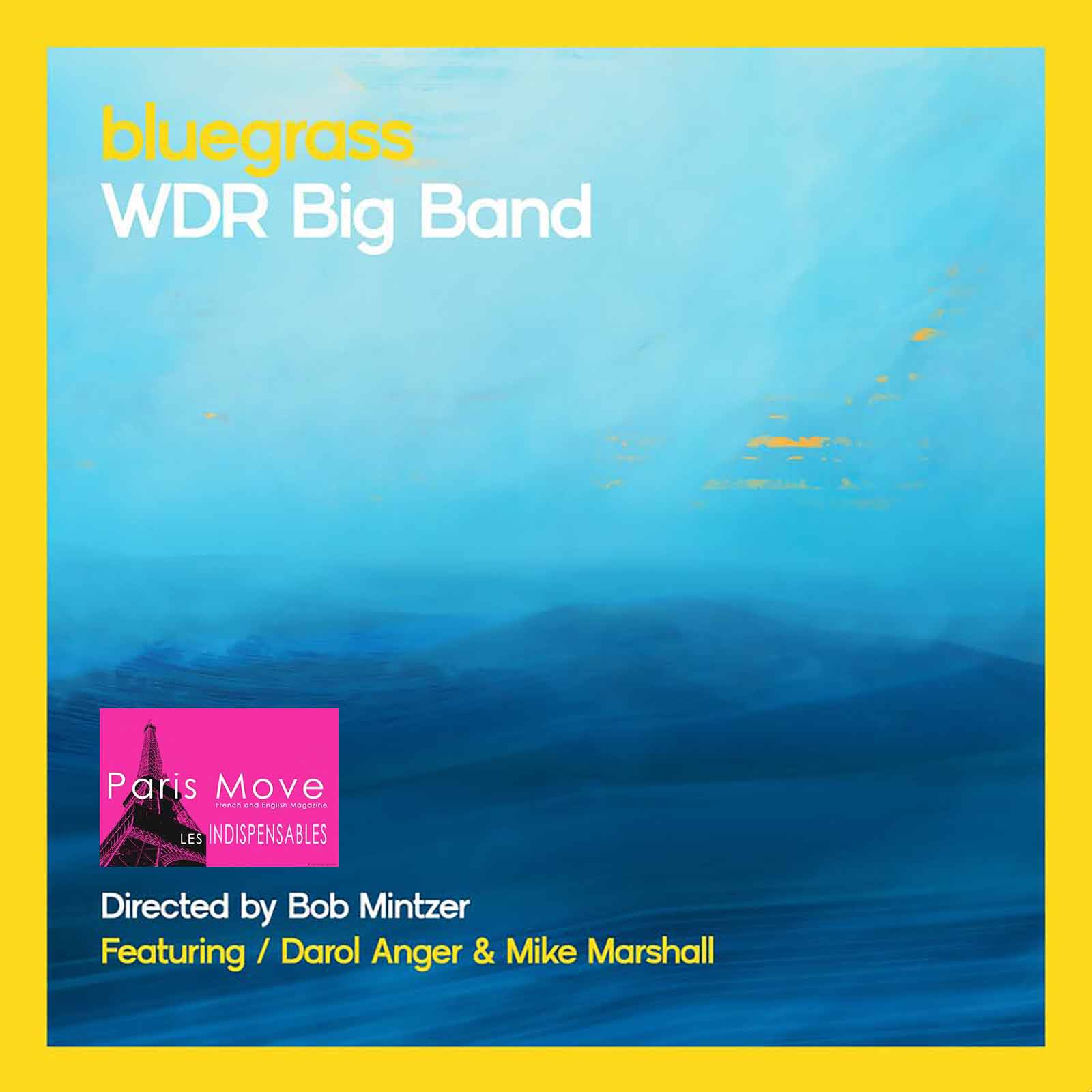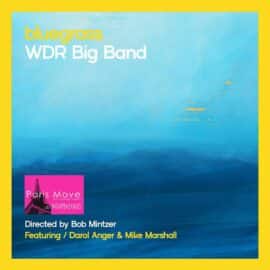| Jazz |

Strings in Flight: The WDR Big Band, Mike Marshall and Darol Anger Reimagine the Big Band Tradition.
There are certain collaborations in jazz that feel less like projects and more like inevitabilities. When the WDR Big Band, the Cologne-based institution that has come to define large ensemble jazz in Europe, joins forces with two of America’s most inventive string players, the mandolinist Mike Marshall and fiddler Darol Anger, the result is an album that radiates both imagination and inevitability. The big band, under the stewardship of Bob Mintzer, has long opened its doors to musical traditions well beyond the borders of swing, and this latest effort reaffirms its reputation as one of the world’s most adventurous and polished ensembles.
A Legacy of Bold Experimentation
Founded in 1947 and nurtured over decades into a full-bodied powerhouse, the WDR Big Band is no stranger to reinvention. Its members, many of them classically trained musicians who later embraced jazz, have a distinctive sound: lush, disciplined, yet infused with a flexibility that makes cross-genre exploration feel seamless. Bob Mintzer, celebrated saxophonist and longtime Yellowjackets member, has been central to this openness. His arrangements balance structural elegance with rhythmic buoyancy, creating a platform where guest artists can both challenge and be challenged.
It is in this fertile space that Marshall and Anger enter. Their presence feels less like an addition and more like a provocation, an invitation to reimagine what a big band can contain.
The Mandolin’s Global Path
Mike Marshall has always lived at the crossroads of genres. At just 19, he was thrust into the national spotlight as part of the David Grisman Quintet, touring internationally and recording with violin icon Stéphane Grappelli. His career since has been a relentless exploration: co-founding the Montreux Band, Psychograss, and the Modern Mandolin Quartet; producing more than 40 albums for labels such as Sony Classical, Rounder, and Compass; and championing the mandolin as an instrument equally at home in bluegrass, jazz, classical, and world music.
Marshall’s collaborations read like a who’s who of modern acoustic innovation: Béla Fleck, Chris Thile, Sam Bush, Edgar Meyer, Sweden’s Väsen, and of course, Darol Anger. His playing here is no less commanding, nimble, lyrical, and always searching.
A Violinist Who Reshaped the Tradition
Darol Anger, for his part, has become one of the most influential violinists of his generation by refusing to accept the limitations of genre. Equally at home in the classroom and the concert hall, Anger has become a vital educator, working with students and professionals around the globe to promote improvisation and the exploration of traditional string styles. His ensemble credits are a map of contemporary string evolution: the Turtle Island String Quartet, Republic of Strings, Mr Sun, the David Grisman Quintet, and his longstanding duo with Marshall.
Anger’s violin has found its way into unexpected corners of American culture, from the soundtrack of SimCity to the NPR Car Talk theme, where he joined legends Earl Scruggs, David Grisman, Mike Marshall, and Tony Rice. On this album, his violin becomes a bridge between the earthiness of folk traditions and the grandeur of a big band.
A Meeting of Worlds
The album itself feels precious in the best sense, accessible without sacrificing sophistication. The WDR musicians, steeped in both classical discipline and jazz improvisation, wrap the string duo in a rich harmonic fabric. Mintzer’s arrangements give Anger and Marshall space to stretch without ever losing the grounding pulse of the ensemble. At times, the music suggests an imaginary geography: a big band pulsing in Cologne, a fiddle line bending toward Celtic melancholy, a mandolin cutting across with bluegrass agility, and the whole ensemble shimmering with orchestral weight.
This is not the first time the WDR Big Band has embraced such border-crossing. A video still circulating online from 1995 captures guitarist Nguyen Lê with the Yellowjackets and the WDR Big Band, underscoring the ensemble’s long-standing openness to global influences. This project stands squarely in that lineage, but it also feels forward-looking—an argument for the relevance of the big band in the 21st century.
The Sound of Excellence
Ultimately, the album testifies to a shared excellence. The WDR players, with their classical roots and jazz mastery, set the stage. Mintzer, as arranger and guide, sculpts the sound. And Marshall and Anger, stepping into a space not traditionally their own, respond with brilliance and curiosity. The result is neither strictly jazz, nor folk, nor classical, it is something else entirely, a new dialect in the global language of improvisation.
A Closing Note
At a time when jazz is often said to be fractured between tradition and experimentation, this recording reminds us of the futility of such binaries. Jazz, at its best, is not about categories but about conversations. Here, those conversations span continents, instruments, and generations. What emerges is not just an album but a statement: that excellence lies not in preserving boundaries, but in dissolving them.
Thierry De Clemensat
Member at Jazz Journalists Association
USA correspondent for Paris-Move and ABS magazine
Editor in chief – Bayou Blue Radio, Bayou Blue News
PARIS-MOVE, September 28th 2025
Follow PARIS-MOVE on X
::::::::::::::::::::::::
MUSICIANS:
WDR Big Band, Darol Anger, Mike Marshall,
Director: Bob Mintzer
All arrangements by Bob Mintzer
Track Listing :
Slip And Slide [Live]
Elzic’s Farewell / Yew Piney Mountain [Live]
Down In The Willow Garden [Live]
Green Lawn [Live]
Emy In The Woods [Live]
Replace It All [Live]
In The Lion’s Den [Live]
Dexter [Live]
Borealis [Live]

